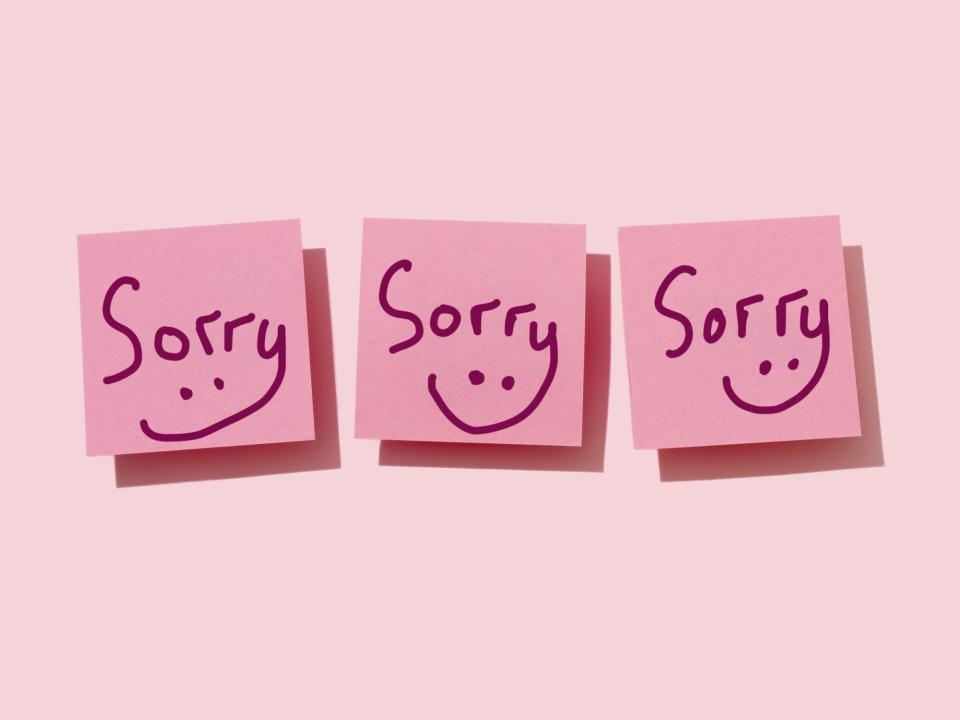One Writer on Why She'll Never Stop Saying Sorry: 'I’m an Unapologetic Apologizer'

Getty Images
A few years ago I got a forwarded email—it is now a meme, I'm sure; look it up—about how women should stop saying they're sorry. Instead of "I'm sorry I'm late," it instructed us to say, "Thank you for waiting for me." Instead of "I'm sorry I'm just now getting back to you" in a work email, I should write, "Thanks for your patience while I ignored your proposal." Or something like that. And I do understand the intention: Women too often apologize for things they shouldn't, making themselves smaller and diminishing their worth in a way that is unnecessary and props up the patriarchy. I get it, I do. I just don't think it's for me. Sorry, but I really like apologizing.
Part of the reason is that I was raised in Tennessee, where good manners—being exceptionally polite, deferential to a fault, even if you don't mean it—are expected.
If someone bumps into me, I will instinctively say, "Oh my goodness, I am so sorry!" like it was my bad. This is the type of needless apology I'm supposed to disavow, I think. But it's a habit. And life is hard. And people need compassion. Maybe that bonus apology smooths a few bumps in the road for a stranger. I certainly don't feel any less whole for saying it. Listen, I'm chronically late. Until I miraculously change (I probably won't), I'm going to apologize for being late. So what if "I'm sorry" is the first thing out of my mouth to a colleague I've left waiting? The next thousand words can be badass.
And if I'm honest, I need the practice. I need those throwaway sorrys to grease the wheels for the more important ones, which, historically, have not come easily to me. I was a bratty teenager. I'm an argumentative spouse. On our walk to school the other day, my 8-year-old was rambling about a hypothetical situation in which a kid might need to make a hard decision on his own: "You know, if his dad was out, and his mom was mean, so she couldn't help." Hypothetically.
I'm determined for my generation to be better at apologizing to our kids than our parents were; that calls for more "sorrys," not fewer. On good days, I apologize for big stuff and ask for forgiveness—which feels much better than stewing in my own self-righteousness, believe me. Other days, I can only manage "Sorry I ate the last peanut butter cup." I feel fine about it. Apologies to whoever sent me that email.
Elizabeth Passarella is the author of Good Apple: Tales of a Southern Evangelical in New York. She lives in New York City with her family.

 Yahoo Finance
Yahoo Finance 